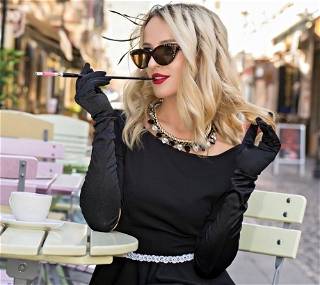- Novels and Novellas
- Crime & Punishment: The Prequel Ch. 03
Note: You can change font size, font face, and turn on dark mode by clicking the "A" icon tab in the Story Info Box.
You can temporarily switch back to a Classic Literotica® experience during our ongoing public Beta testing. Please consider leaving feedback on issues you experience or suggest improvements.
Click hereThe Reverend Thomas McManus, former auxiliary bishop of the Arch Diocese of Brooklyn, was dying of the pancreatic cancer that had eaten from that organ into the rest of his pain-racked body. Every twenty minutes, the little drug-dispensing machine would whirl a revolution and dispense a drop of morphine into his IV drip. Morphine and the small female hand laid over his were his only pain relief.
The hand belonged to Maryann, who had been, in every physical sense, Mrs. McManus for the last thirty years. She had even legally changed her last name so that the two sons and a daughter she bore the bishop would carry their father's name. Thomas was 73 years old and had retired a year before his cancer was discovered; Maryanne was only just fifty. As a mere girl of nineteen, she had fallen under the spell of the worldly priest.
As was the custom in North America, she carried the title of housekeeper. Thomas was a bishop under the Diocesan Cardinal. Thomas, a man of considerable wealth, maintained a house on Congress Street in Brooklyn's fashionable Cobble Hill neighborhood. His woman and their children ostensibly resided in their own apartment, but this was a mere show.
Maryann McManus was in constant attendance at the hospital bed of the man she considered her husband. He was a good man who had provided for his children. A man's man who was better for having a family to love and care for—and to love and care for him in return. A part of Maryann's soul was dying in the bed she sat beside, but her fifty-year-old body was in good health and potentially had many long years of widowhood ahead of it.
Most women in Maryann's situation were a bit naive. It is hard not to be. It takes a romantic woman, deeply in love, to live in the shadows for her man.
"You live," as one cardinal's wife told Maryann "as the other woman in a one-woman relationship."
Women like Maryann are an inconvenient necessity to the Holy Church. They are lovers who give without restriction or expectation. Easy victims for a ruthless and hypocritical Church hierarchy. But, in her case, Maryann had traveled extensively. She was the kind of woman you could take anywhere. She was beautiful, in a natural, American girl way, with a social sophistication which was only surprising if you did not know that she was a prodigy who had entered Vassar College at sixteen and graduated early and with honors at 19.
Bishop McManus had taken his Maryann to Rome six times. One stay had lasted more than a year. Maryann had mingled with other women like herself, hidden women, bound to priests. But European women are not so reticent or embarrassed as to not speak of their situations, especially amongst themselves.
She had heard stories from her European sisters. Unpleasant tales of inheritances lost, children abandoned, and women left in destitution. She knew the fate the Church had in mind for her, and she had taken precautions. Thomas McManus was rich, even by American standards. The son of a prominent Irish-American family, he had never been in want. His lifestyle was never less than comfortable. Maryann had no intention of being turned out on the street or trading her lavish Cobble Hill residence for a public assistance apartment in Yonkers.
Maryann had suffered a life of being a housemaid in her own home, but she had taken steps to protect the Bishop's wealth from the avarice of the Church. She made safe his valuable papers. She documented her children's paternity indisputably, as only a modern woman can. But most importantly, she had the file. That surprising file she found in her husband's hidden wall safe on the day he entered the King's County Medical Center for the last time.
On that day, she had burgled Tom McManus's home office safe. It was a preemptive strike on her part, a step taken before she called the ambulance. She was not supposed to have the combination or know the safe existed, but she had cracked those problems sometime before. Following the script from a movie, she dusted the number keys with fingerprint powder. Given a set of four numbers, it was easy to recognize her daughter's birthday. It was, in fact, a six-digit code—but two numbers repeat in 12/15/92.
The legal-sized file appeared at once out of place, its content confusing until the names began to fall into place, and she recognized it for the powerful and dangerous object it was. Why Thomas should have it was a mystery; until she realized that his safe was merely acting as the priest hole. The hiding place for a document too valuable to destroy and too risky to keep anywhere you might expect to find it. A document that could destroy the holder as easily and surely as its intended target. A distressing catalog of malfeasance set aside for a time of extreme need.
With her secret file, Maryann McManus felt she could weather any storm that came, no matter how high the wind blew. But she also felt guilt for holding a record that had only one, immoral use. She was a good woman in a difficult circumstance. Caught between protecting herself and her family and her conscience; a choice clouded by the very nature of what she held. What the file contained was at once powerful and evil. To hold it was somehow to accept the sins it documented. To destroy the file was to conceal the sins it contained, and yet, to give it to anyone was unthinkable.
****
Susan Fitzgerald Singleton arrived at the Governor's Ball on the arm of the tall, handsome Anthony Greco. The black, backless Dior dress, with its plunging V-neckline, announced that the best-looking woman in the room had arrived. The emeralds she wore, borrowed from her mother, said she was also one of the richest.
Tony was as proud as a peacock as he ushered the object of every pair of eyes toward the ostensible center of attention, the Governor of New York.
Edward Kincade, the governor, smiled as he greeted his new personal press secretary and whispered, "Is this how you intend to get me attention? Just stand next to me?"
"Why, Governor, I'm merely reflecting your glory," Susan replied.
"No, I assure you, the moon is forgotten when the sun rises," and, then, in a louder voice, "Tony, so good of you to fill in for Mrs. Fitzgerald's husband. We would have been truly deprived without her attendance."
The governor noted the brief flicker of displeasure that crossed Tony Greco's face at the mention of his rival. Steven Fitzgerald didn't rate an invitation to such an exclusive gathering of the rich, powerful, and famous. Steven had, in most people's view, had his fifteen minutes of fame the month before, with his surprise win in the Hamilton murder trial. But he remained the woman's husband. It just would not do to blatantly throw her affair with Greco in people's faces. Known it might be, but a line of deniability needed to be maintained.
Susan was as sharp as Kincade, "Steven is so disappointed; he was so looking forward to thanking his former trial coach for honing those skills that helped him win the Hamilton case. But he asked me to thank you for him," she said in a voice loud enough to carry to those around them.
The governor could only smile. Good spin, he thought, and he was just a little proud to be included in the glory of Steven's amazing win. The governor had skimmed the Hamilton transcripts and spoken of it to those reporters who had covered the case. No one had quite been able to explain precisely how the straw-man argument of Hamilton's defense had been spun into a not guilty verdict. The general consensus was that it was a one-off and that the young lawyer would soon fall back into obscurity. Still, he was the governor's former student, and Ed Kincade was at least entitled to some credit. Right?
Susan passed on to be introduced to the other dignitaries. Many knew her father, mother, sister or various cousins. The rich are a small group, getting smaller by the day. Susan always wondered how many, if any, knew how often her gambler father had brought the family to near bankruptcy with his risky speculations. The emeralds she wore had been pawned many a time to raise the three million of their appraised value, when needed.
This was Susan's kind of crowd. She could work the room like the professional she was. She was here, now, to support the presidential bid of a popular reform governor, the very man the state had needed, and the man she would convince the nation it needed. But tonight, she was preaching to the choir; this was Kincade's crowd, and this was only the warm-up, still two years out of the presidential election year. This was a new road that the governor and Susan, his new personal PR aid, were traveling. Like all journeys, it was beginning with expectation and excitement. Whether it would end in glory or tears was, as yet, unknown.
Susan and her escort danced when she wasn't stroking the attendant egos of the rich and powerful and pushing the governor's saintly qualities to his eager admirers. Susan was a good dancer, but her partner was exceptional. Tony had won many a woman with his dazzling footwork. He held her as close as propriety allowed and made clear that, for that night, she was his woman. Yet he was planning for more than an evening.
"Time for a breath of air," Tony said and slipped his arm firmly around Susan's waist. Susan looked around to see who might be watching, but, at that moment, all eyes were fixed on the governor dancing with the Ebola doctor, Simone Redmond. Interned on her return from Africa by the Republican governor of New Jersey, Dr. O'Reilly was one of the governor's personal causes. Susan had arranged that the picture of the Governor's Ball that graced the New York Times tomorrow would be Edward Kincade dancing with the beautiful doctor. The article that would accompany the picture would describe the pediatric surgeon as a great and fearless humanitarian and praise the governor for his support of the fight against Ebola.
Susan didn't see the doctor's husband, the disreputable attorney Jimmy O'Reilly. He was a friend of Susan's husband, Steven, but why she could not understand. The two men were clearly professional rivals and seemed to have nothing in common. Moreover, O'Reilly looked the part of the unethical defense attorney. A tall, handsome man with dark, deep-set eyes, he seemed a little dangerous, the total opposite of the short and slender Steven, with his clear blue eyes and innocent appearance.
Dr. Redmond didn't use her husband's name for good reason considering his unsavory reputation, but the couple were generally believed to be very happily married. Susan had, however, heard a rumor about attorney O'Reilly and a certain assistant of the governor. Carrie Wilson was Governor Kincade's personal assistant. Ms. Wilson was young barely twenty-five. A Yale law grade who was engaged to Ray Emerson, the powerful counsel to the assembly majority. It was widely believed that Ray and Carrie had an open relationship.
Ray Emerson had a playboy reputation and was known to escort models and would be actresses to the theater and social events in New York City. Carrie had been connected to several men in Albany, but nothing serious. The couple were young although Ray was a good ten years older than his fiancé. They were considered a political power couple.
Carrie Wilson was the governor's go-to girl, but she was no great beauty. Attractive with her long auburn hair and big brown eyes, yet hardly competition for the striking redheaded Simone Redmond O'Reilly whose perfect porcelain white skin shown in the glittering light of the state mansion ballroom. Both women were well dressed, but while the younger Carrie had dressed for sexy and somehow come off looking a little preppy, Simone had gone for elegant and achieved that. She and the governor made an exceptionally attractive couple dancing together.
As they danced, Tony led Susan toward the garden doors. With all eyes on the governor and the doctor, Susan felt safe letting her escort lead her into the garden of the state mansion. The harvest moon covered the landscape in silvery light. It was an unusually warm night for October in Albany. A late Indian summer, they were calling it. Still, Tony wrapped his jacket around Susan's bare shoulders. The garden was a short walk from Eagle Street, with its newly gentrified, Victorian row houses. They were walking towards the monolithic buildings of what is called the South Mall. In the moonlight, the massive rows of state office buildings looked like an image from some alien homeworld. And yet, it was so strangely beautiful, this garden caught between the past and the future.
Tony pulled her into his arms, kissed those silken lips with a fire built of lust and love. He felt her heart beat faster as he pressed her to his body. Her perfume overwhelmed his senses. Susan returned his kiss with the same passion. She luxuriated in his strong, masculine embrace. No thought of her husband was in her mind. In that moment, Steven did not exist.
Tony brought them back to the earthly world. He broke their kiss and squeezed her tight, "I have something to ask you."
"Not here love. We should not even be doing what we are. Someone will see," she whispered back, assuming he wanted sex, but she made no move to free herself.
"No, I want more," he said, then paused, letting the moment build before saying the words, "Will you marry me?"
If someone had poured a bucket of ice water on Susan, they could not have cooled her passion more thoroughly. However, Susan was a woman of considerable experience. She put on her game face and gave a brief and intimate laugh to indicate that while she appreciated the gesture, she would not take it as more than that—the gallant gesture of a romantic man in a loving moment.
"I'm serious. I want to marry you. I want us to be husband and wife," Anthony Greco said.
He held Susan by her upper arms, and he looked into her moonlit eyes.
"This is very romantic, but isn't there the small problem of my husband?" she said.
"We both know he's not man enough for you, and you don't love him the way you love me."
"But I do love Steven, and we are married. He has done nothing wrong here. How could I hurt him so?" she asked.
Susan kept her voice low and steady. She was a woman who had needed to let many a man down gently in her life. Women like Susan attract suitors merely by breathing the same night air. All men have fragile egos, but Alpha males have egos like spun sugar. The merest touch would shatter this night into a thousand irretrievable pieces.
"You need to think of yourself, of us, and our happiness," he said.
This was precisely what Susan was doing. Marrying Steven had been Susan's best decision. It had been a decision Steven agreed with only after great efforts on Susan's part. Yet, as in almost everything in the lives that Susan and Steven led, Susan's judgement was what mattered. Among its other benefits, being married had protected her from unwanted propositions of marriage. Most people see an existing marriage as an obstacle to a proposal. It was this fact that Susan had been relying on with Tony, apparently in error.
She had known that their relationship was as intense as it was enjoyable. She liked Tony, even loved him in her way, but she would never marry him, even were she free. For her part, she could not see how a man like Tony would consider marrying a promiscuous woman. She made no secret of her sexual past, nor of her unfaithful behavior. Men like Tony Greco didn't let their wives play. What was this man thinking?
She moved into his arms, placed her head on her chest, "My love, you are a wonderful man, and dear to my heart, but you must understand: Steven is my husband. He will fight any divorce and ruin the both of us. I can't let you throw your life away."
Tony held her tight. He had not expected this. His ego was such that he had thought to brush past the woman's existing marriage. He feared Steven Fitzgerald, not in the least, and would have been surprised if he knew Fitzgerald held him in complete contempt. Fitzgerald regarded the governor's aid as a flunkey and fool.
"I'm not afraid of your husband," Tony bragged.
"But, I am," Susan said speaking her first true words since the conversation began. She did indeed fear her husband. Deep in her soul, she knew that Steven Fitzgerald was the most dangerous of men—cool of temperament, smart, and, above all, ruthless. The innocent face was a mask he wore very well. She sometimes thought he existed on some foreign spiritual plain. He was a man devoid of conscience and fear, one who could and would focus on an objective to the exclusion of all else.
The mansion's garden doors opened, and the governor's guests began walking out for a breath of air. The band had stopped playing for a break. Susan used the interruption as an opportunity to separate from Tony's embrace.
"We should go in," Susan said, not waiting, but walking away.
She kept a few steps ahead of Tony as they reentered the ballroom, which was now mostly empty as the guest had drifted with the break in the music. She was looking for someone she could talk to and deflect Greco, and she found her.
"Laura, how pleasant to see you here," Susan said to the tall, pale blonde woman standing with a handsome, impeccably dressed black man. The dark-eyed Laura Sullivan was the wife of Steven's closest friends. The two women had, through the years of their respective courtships and marriages, become friends. Like Susan, Laura was a woman far more
successful than her husband. Laura was a senior associate at a major law firm, but her husband was a lowly assistant district attorney in one of the smaller, county DA offices.
The two women had much in common. Both were a few years older than their husbands. More to the point, both women would have been considered to have married down. They had married men they could control, less ambitious men who would support their careers and ambitions. These were women more shrewd and practical than the average. They, nonetheless, loved their husbands, who they saw as being in need of wives like themselves.
"Great to see a familiar face, I feel very out of place," Laura said, moving in to brush a kiss past Susan's face.
On introduction, the man standing next to Laura with an arm around her waist was Frank Patterson, a senior partner in Laura's firm. He and Tony were acquainted because Frank was counsel to the Black and Hispanic State Assembly Caucus. The two men exchanged small talk as Susan invited Laura to the restroom.
As they separated from the men, Susan leaned into Laura and said, "You don't know how glad I am to see you."
"The feeling is way mutual. I had no choice but to come when invited by a senior partner, but he has ideas that go way beyond a dance or two."
Susan laughed. The differences between the two women were few, but significant. Laura was not as exceptionally beautiful. The contrast of her blonde hair and dark eyes gave her a striking appearance, and she had what could be called a sexy figure. The raven-haired Susan was physically more attractive. A little taller, more elegant, and rapaciously beautiful, but the greatest distinction between these two women was Laura's lack of inherited wealth. Laura's husband made next to nothing as an assistant district attorney while she had a six-figure income but a precarious situation.
Laura longed for a partnership with its security and a seven-figure income. The dream of a girl born smart, but poor. Worried about tomorrow and dreaming of a big house full of children Until she achieved her partnership, Laura and her dreams were at the mercy of men who saw a sexy figure as a challenge and an opportunity. Such is the life of a female associate in a large law firm. To get ahead, you need equal measures of brains and looks. Laura was well endowed in both areas. The question was how far would she go to use her gifts.








